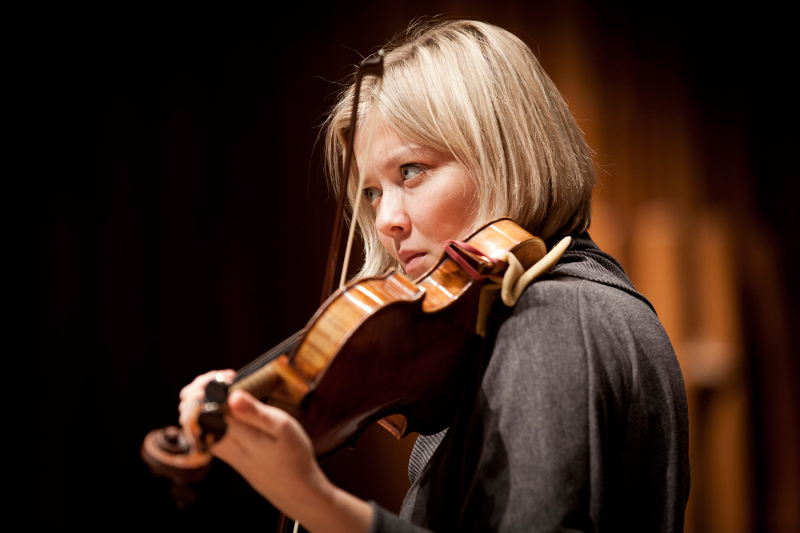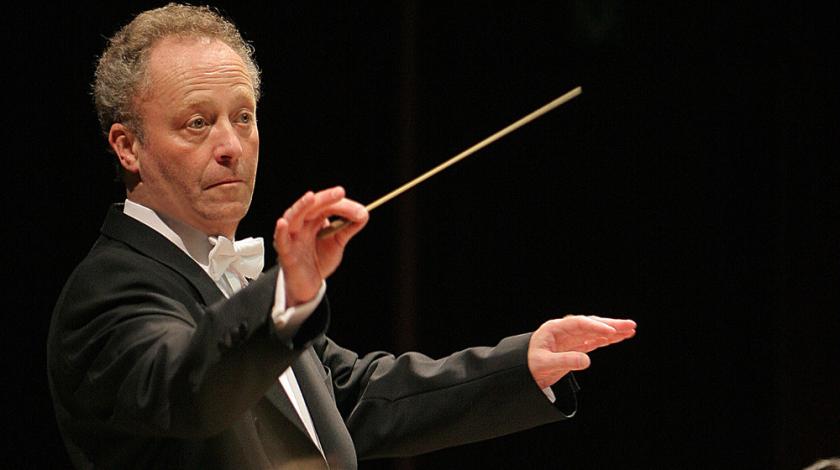It was to have been the culmination of principal conductor Robin Ticciati’s Brahms symphony cycle with the Scottish Chamber Orchestra. But with Ticciati laid up with a herniated disc, we’re told, it fell to the SCO’s principal guest conductor Emmanuel Krivine to step in at the last minute. What Ticciati would have made of the concert, and of the concluding Brahms Fourth, of course, we’ll never know – and it would be churlish to speculate. What Krivine did make of the evening, however, was something really rather remarkable.
Remarkable in his passion and energy, his boundless enthusiasm for the music, and for the fiercely committed playing he drew from the SCO players. Just take the Brahms Symphony’s scherzo, which saw Krivine leaping bodily into the air to galvanise the musicians into action, or straining backwards against the podium to rein them back. It was an astonishing display – not one matched elsewhere in the Symphony, perhaps thankfully. Krivine drove his serious-minded closing passacaglia urgently ever onward, but there was a nobility about it too, and the churning harmonies of the first movement felt luminous and light-footed rather than thick and heavy – indeed, Krivine’s crisp, brisk account with the slimline SCO forces actually made the music seem more powerful, certainly more focused.
 And nothing if not utterly sincere. He’d replaced Ticciati’s bold original opener – Jörg Widmann’s Ikarische Klage – with the admittedly far more commonplace Mendelssohn Hebrides Overture. But he made it entirely his own, in a hugely characterful account that let the individual lines shine out, and never held back on a spot of Sturm und Drang.
And nothing if not utterly sincere. He’d replaced Ticciati’s bold original opener – Jörg Widmann’s Ikarische Klage – with the admittedly far more commonplace Mendelssohn Hebrides Overture. But he made it entirely his own, in a hugely characterful account that let the individual lines shine out, and never held back on a spot of Sturm und Drang.
Both there and in the Brahms Fourth, Krivine had an uncanny knack for carefully crafted texture – put to good effect in vividly conveying the former’s bubbling watery evocations, and in picking apart the dense textures of the latter, with hard-edged lines and brilliantly defined articulation.
It was in Schumann’s Violin Concerto, however, that Krivine’s textural magic seemed to falter – although the softer edges and more fuzzy definition probably had a lot to do with Schumann’s original orchestration. It’s a strange work, of course, produced during the composer’s troubled last years, and rejected by its original dedicatee Joachim who felt it morbid, a product of Schumann’s supposed madness. It takes a strong musical personality to bring it truly alive and overcome its eccentricities, but Alina Ibragimova (pictured above right) had just the sense of utter conviction that the Concerto needs. She was simply electrifying – etching each phrase with startling precision, yet seeming to convey the Concerto’s sense of struggle and turmoil all the same.
it’s hard to imagine a more compelling, commanding performanceShe was tender in her second movement duet with SCO principal cellist Philip Higham, and she overcame the strangely lethargic tempo of the last movement with some sensibly flexible playing, speeding up or down as the music seemed to demand, bringing its rustic dance thrillingly alive as a result. The Concerto might still inevitably seem like a curiosity, a work fascinating more for its hair-raising back story than for its musical merits, but it’s hard to imagine a more compelling, commanding performance of it than Ibragimova’s. Or a more generous, sincere account of its orchestral side than Krivine’s.
The conductor made his mark with one final, quirky gesture, halting the concert’s tumultuous final applause, not for an encore, but to thank principal clarinettist Maximiliano Martín for his solo in the Mendelssohn Hebrides Overture almost two hours earlier, which he’d omitted to do at the time. A little contrived, maybe, and probably unnecessary, but if only more conductors had Krivine’s warmth, generosity, and effortless rapport with listeners and players alike.














Add comment